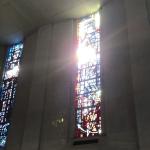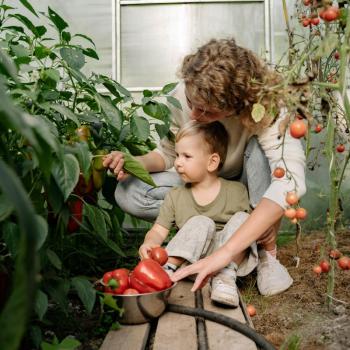Giving thanks for God’s Creation is one way to live out our gratitude and reorient our hearts toward service and sustainability.
Here are ideas for reading and preaching Deuteronomy 8:7-18 and Luke 17:11-19. This is part of the EcoPreacher 1-2-3 series to equip preachers and congregations for engaging the Bible through an ecological lens. These texts are assigned as part of the Revised Common Lectionary for Thanksgiving Eve in Year A.

Eco-Exegesis
Eco-exegesis is a method of interpreting the biblical text through a green lens using the principles of ecological theology.
Deuteronomy 8:10-11: You shall eat your fill and bless the Lord your God for the good land that he has given you. Take care that you do not forget the Lord your God, by failing to keep his commandments, his ordinances, and his statutes, which I am commanding you today.
Luke 17:18-19: [Jesus said to the man who was healed of leprosy]: “Was none of them found to return and give praise to God except this foreigner?” Then he said to him, “Get up and go on your way; your faith has made you well.”
In many communities across the United States, houses of worship will join together for a combined Thanksgiving Eve worship service. Giving thanks is a spiritual practice that nearly all religions have in common. So, the holiday of Thanksgiving is an ideal time to bridge theological and religious divides in order to stand on the common ground of gratitude.
For churches that follow the liturgical readings assigned in the Revised Common Lectionary this year, there are two passages that emphasize not just the need for giving thanks but also the humbleness of heart that is a precursor to gratitude. And this humbleness of heart requires a reorientation of priorities, especially for those who enjoy wealth and comfort. Key among those priorities is giving thanks for the Earth which God has entrusted to human care as well as acting on that gratitude in ways that ensure the health of this planet for all living beings.
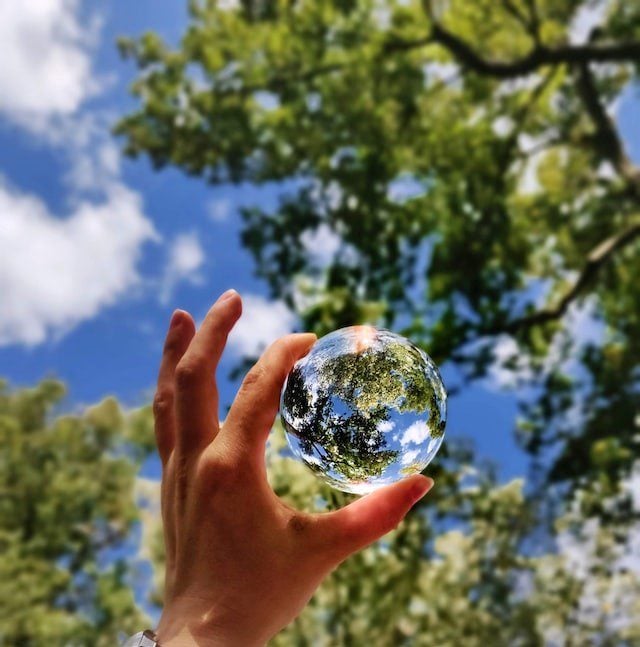
Deuteronomy 8:7-18
Deuteronomy 8:7-18 is part of one of Moses’s speeches to the Israelites as they are preparing to enter the Promised Land. According to Rabbis Yonatan Neril and Leo Dee, in this section of the text, “God is warning the Israelites not to forget the lessons that they learned when they were desperate and dependent in the desert. They, too, must remember it once they…become wealthier and feel independent,” (Eco Bible Vol. 2, 147.)
The rabbis further reflect, “When the people were tangibly dependent on God in the desert for their food (the manna) and shelter (clouds of glory), they had no problem seeing the role of God in their lives.” But that changed once they came into the land promised to them and amassed enough flocks and herds to generate income beyond a subsistence level. “Once they built houses that could be passed down to future generations, and had excess income to spend on luxuries, it became easy to forget their connection to God’s gift of rain and soil and His protection and continued, yet invisible, influence in their lives,” (147-8).
Luke 17:11-19
There is a parallel story of forgetting to be grateful in the Gospel of Luke, 17:11-19. After Jesus heals a group of men afflicted with leprosy, they quickly forget the source of their blessing and go on their merry way. Only one of them – an outsider – returns. We might imagine that giving thanks was already a spiritual discipline for this man, so much so that he returned with sincere appreciation for the gift of healing Jesus gave him.
As the world focuses on the United Nations Climate Change Conference (COP28) in Dubai, UAE, from Nov. 30—Dec. 12, 2023, it is crucial that we expect our national delegates and policy-makers – especially in wealthy countries – to reorient themselves toward gratitude, humbleness of heart, and giving thanks for the Earth. And it is imperative that they act on this gratitude in ways that ensure the health of this planet for all living beings. As the Rabbis remind us, “Material blessing should not be an end in itself. Using abundance for the common good is key to a sustainable society. Spirituality in the service of sustainability will help the next generation inherit a livable and thriving planet” (148).
COP28 UN Climate Conference
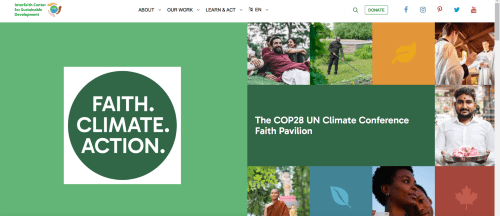
One way that congregations can enact their gratitude and care for the Earth is through taking action on climate with the COP28 UN Climate Conference Faith Pavilion. The first-ever Faith Pavilion at a World Climate Conference is hosted by the Muslim Council of Elders in collaboration with the COP28 Presidency, the United Nations Environment Programme (UNEP), and a diverse coalition of global partners including the Interfaith Center for Sustainable Development, the Episcopal Diocese of California, the International Partnership on Religion and Development (PaRD), the Peace Department, and over 50 faith organizations. Pope Francis will come to the Faith Pavilion for an inaugural session on December 3, 2023. As a hub for sessions, advocacy and media, the Faith Pavilion will further the role of religion and spirituality in the climate movement. With the deepening climate crisis, we need to hear the voice of the faith community now more than ever.
1 Eco-Idea
The Eco-Idea is one succinct statement that tells us who God is and/or what God does in relation to Creation and how we should respond as people of faith.
Giving thanks for God’s Creation is one way to live out our gratitude and reorient our hearts toward service and sustainability.
2 Eco-Questions
Eco-Questions are what we can ask to help a congregation draw out the implications of the Eco-Exegesis and Eco-Idea.
- What would our Thanksgiving meals be like if we paused not just in giving thanks but also during the meal itself to eat consciously and focus on the blessings of the Earth? How might our meals be different if we reflected on the taste, smell, texture, and feel of each bite? In what ways might our physical and spiritual health improve with this kind of mindful eating?
- Instead of rushing to shop for deals after the Thanksgiving meal or the day after, what would happen if you and your loved ones took a walk in a local park, or a botanical garden, or a nature preserve? What would the holiday be like if could you extend your gratitude, humbleness of heart, and sustainability practices just one more day?
3 Eco-Actions
![]()
Eco-Actions are ways that a congregation might respond to the Eco-Idea and Eco-Questions. One of these possibilities may have salience for your ministry context.
- Contact Interfaith Center for Sustainable Development to find out how your church can support the COP 28 UN Climate Conference Faith Pavilion: Contact | The Interfaith Center for Sustainable Development (interfaithsustain.com).
- During the prayers of the people in your community Thanksgiving worship service or the Sunday following Thanksgiving, pray for God’s Creation and ask for people to be united in caring for our common home.
- Call your denominational head office and ask if they have divested from fossil fuels. If the answer is yes, thank them. If the answer is no, ask why. Tell them why this is important to you as a member of the church.
Read also:
Thanksgiving Readings: Interfaith & Secular Quotes on Gratitude
Thanksgiving, Manna, and “Just Enough”: Exodus 16:13-21
Gratitude is More than Skin Deep: Thanksgiving Sermon
EcoPreacher 1-2-3 is a partnership between the Rev. Dr. Leah Schade and the Interfaith Center for Sustainable Development, publishers of Eco Bible, a Jewish ecological commentary on the Hebrew Scriptures. EcoPreacher 1-2-3 provides Creation-centered sermon preparation that is short, accessible, and based on a solid biblical foundation. To see other EcoPreacher ideas and to sign up to receive future EcoPreacher 1-2-3 installments, click here.
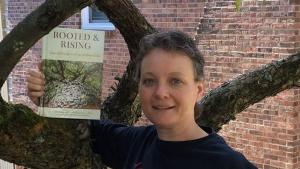
The Rev. Dr. Leah D. Schade is the Associate Professor of Preaching and Worship at Lexington Theological Seminary in Kentucky and ordained in the ELCA. Dr. Schade does not speak for LTS or the ELCA; her opinions are her own. She is the author of Preaching in the Purple Zone: Ministry in the Red-Blue Divide (Rowman & Littlefield, 2019) and Creation-Crisis Preaching: Ecology, Theology, and the Pulpit (Chalice Press, 2015). She is the co-editor of Rooted and Rising: Voices of Courage in a Time of Climate Crisis (Rowman & Littlefield, 2019). Her newest book is Introduction to Preaching: Scripture, Theology, and Sermon Preparation, co-authored with Jerry L. Sumney and Emily Askew (Rowman & Littlefield, 2023).


